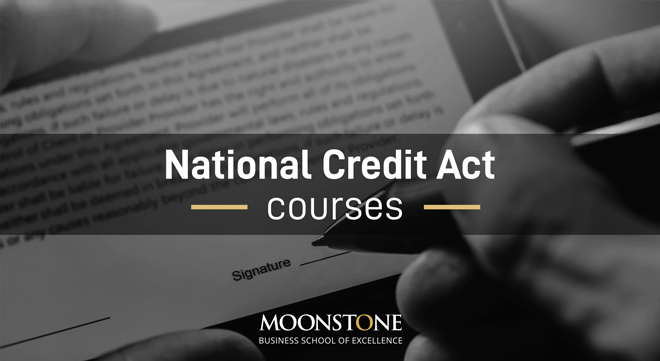With the deadline for the annual renewal of registration in terms of the National Credit Act (NCA) approaching fast, credit providers are encouraged to dot their i’s and cross their t’s less they find themselves out of a job.
In a circular distributed in early June, the National Credit Regulator (NCR) again highlighted the consequences of non-compliance with this requirement.
In terms of the NCA, credit providers (including debt collectors, micro-lenders, and vehicle financiers) must pay the registration renewal fee by no later than 31 July of each year. If they fail to pay the registration renewal fees by this deadline, they will have a further 30 days grace period, which is subject to a penalty fee. Failure to make payment within the 30 days grace period will result in the automatic lapsing of their registration.
This this may seem straightforward, but a problem arises when credit providers fail to use their registration number as the reference number for each payment made.
If payment is made into the correct NCR banking account, but the wrong reference number is used, the NCR will not allocate this payment to the credit provider’s account, nor will it investigate payments made using the incorrect reference numbers. The same applies if payments are made into the wrong account. Your mistake, your problem.
And this is not the kind of problem that will go away. When registration as a registrant of the NCR automatically lapses, credit providers are prohibited from offering or engaging in activities that require registration in terms of the Act. As such, all business activities concluded after the lapsing of the registration will be considered unlawful and “of no force or effect”.
The only option for credit providers that have lapsed is to be registered again. An application and all supporting registration documents must be submitted, and the application will be processed as a completely new application and only approved if all the requirements are met.
Gerrit Viviers, an NCA specialist at Moonstone Compliance, advises registrants to be pre-emptive and check with their NCR-appointed compliance officer that their contact detail with the NCR is up to date.
“The NCR sends the notices of annual renewal of registration to its registrants, but it remains the responsibility of each registrant to monitor due dates of renewal and comply with this provision timeously,” Viviers says.
Master the NCA with MBSE
Considering that even the registration process can be fraught with missteps, credit providers would do well to arm themselves with a thorough understanding of the NCA when it comes to navigating its waters.
Moonstone Business School of Excellence (MBSE) offers three online courses that help credit providers master the requirements of the Act.
Managing the NCA is tailored for executives, senior managers and financial managers employed by credit providers. The course, which takes about 12 hours to complete, costs R4 104 (including VAT). Click here for more information or to apply.
Understanding the NCA is for finance and insurance agents at motor dealers, and the employees of credit providers and credit agents. This course will take about eight hours to complete and costs R3 024 (including VAT). Click here for more information or to apply.
The NCA Refresher course is for any person operating within the South African industry who wants to refresh their knowledge of the requirements of the NCA. It too takes about eight hours to complete. The cost is R3 024 (including VAT). Click here for more information or to apply.
The courses not only focus on the practical application of the NCA, but they are also user-friendly. Students engage the material via an interactive interface, making the learning experience fun, as well as informative.
In addition to the interactive interface, the learning units come with videos and downloadable study guides, if you prefer absorbing knowledge from printed material.
Students also get access to tools, such as templates for prescribed returns, and a library of guidelines and notifications from the NCR – so there’s no need to waste time tracking these down.
Students complete a self-assessment after each learning unit, and there’s a final assessment at the end of the course.
You can apply for any of the three courses at any time during the year.



